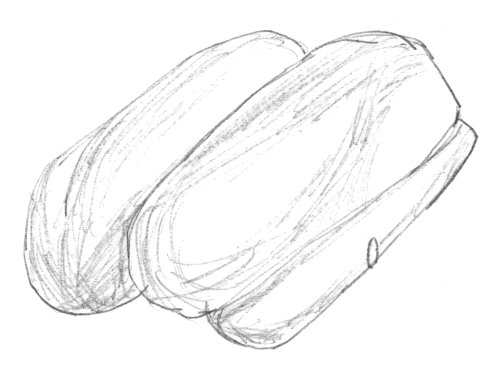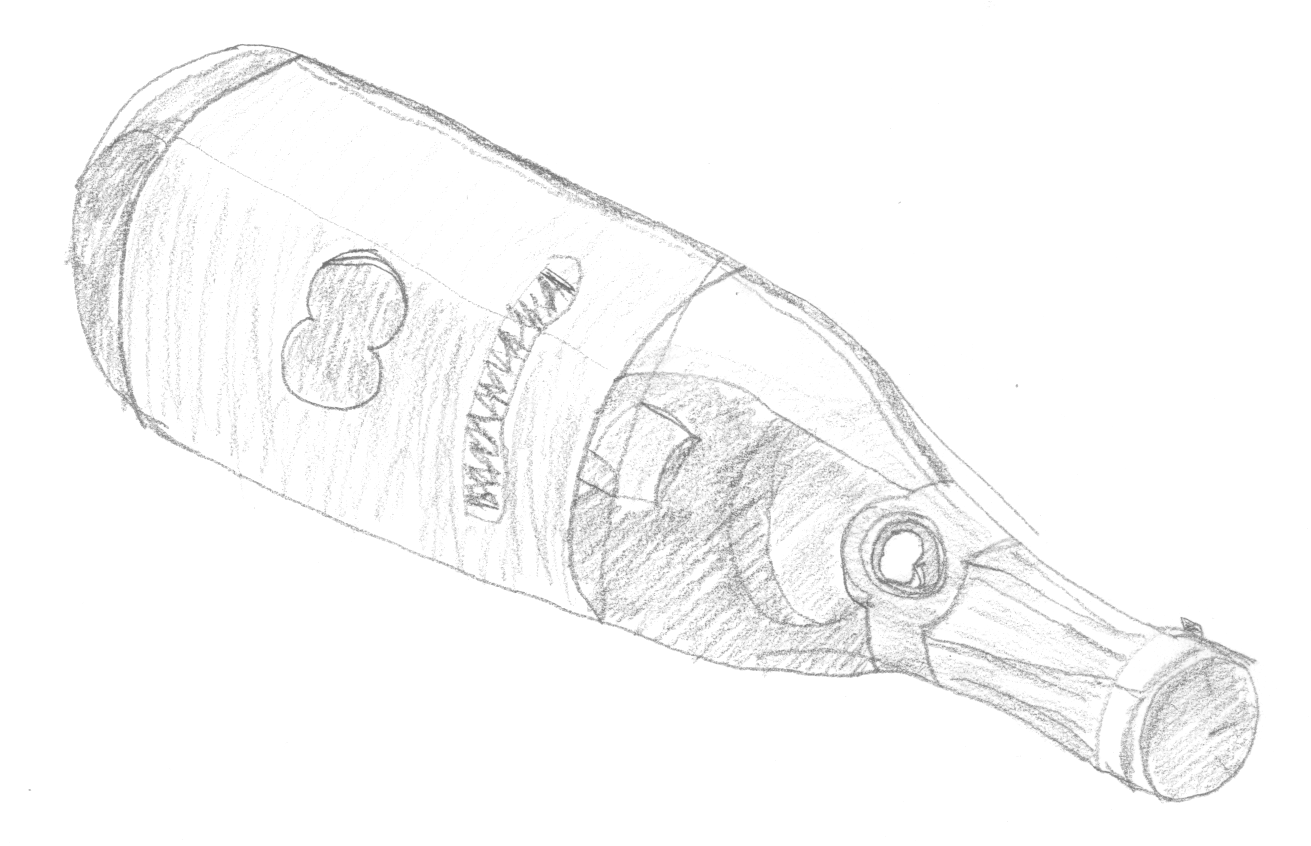I studiously avoided listening to General Conference this weekend, instead preferring to do things like introduce myself to the Standard Model of particle physics. One conference talk worked its way through my defenses, however: Dallin Oaks’ talk on Saturday afternoon.
His talk was about what it means when a Mormon says they “know” that various claims are true. I’ve covered that ground before, but I can’t resist responding in detail to Oaks’ talk.
A testimony of the Gospel is a personal witness, borne to our souls by the Holy Ghost that certain facts of eternal significance are true and that we know them to be true. Such facts include the nature of the Godhead and our relationship to its three members, the effectiveness of the Atonement, and the reality of the resurrection.
Knowledge is defined in many ways. I believe that Oaks is using it similarly to the classic philosophical definition of knowledge: believing a true proposition and having a good justification for believing it.
Various questions arise as we hear others bear testimony or as we consider bearing testimony ourselves. In a testimony meeting, a member says, “I know that the Father and the Son appeared to the Prophet Joseph Smith.” A visitor wonders, “What does he mean he when he says he ‘knows’ that?” … What do we mean when we testify and say we know the Gospel is true?
Contrast that kind of knowledge with “I know it is cold outside” or “I know I love my wife.” These are three different kinds of knowledge, each learned in a different way. Knowledge of outside temperature can be verified by scientific proof. Knowledge that we love our spouse is personal and subjective. While not capable of scientific proof, it is still important. The idea that all important knowledge is based on scientific evidence is simply untrue.
I agree that not all forms of knowledge come from the scientific method. Some forms of knowledge are personal and not yet completely subject to scrutiny by the instruments of science, like knowing that you love you wife. If the statement is rephrased as “I know that I feel loving emotions in connection with my spouse”, it states more precisely what we usually mean when we say that we love our spouse.
The assertion that “I know the Gospel is true” can also be stated more clearly by saying “I feel certain that the Gospel is true.” This feeling of certainty is the part of the statement that can’t be subjected to scientific scrutiny. The truth claims of the Gospel can, however, be examined and evaluated through the scientific method or other knowledge-gathering techniques. Someone can’t refute that a person feels certain that the Gospel is true. That feeling of certainty doesn’t imply that the Gospel is true.
While there are some evidences of gospel truths, scientific methods will not yield spiritual knowledge.…
It is true that science does not deal with metaphysical ideas. Oaks seems to make two assumptions. The first is that the search for knowledge is confined to two players: science and religion. There are other ways to evaluate metaphysics which involve neither the scientific method nor religious faith. Logic and human reason are not bound by the constraints of scientific empiricism nor of religious faith. Reason has something to say about metaphysics. We can use our reasoning faculties to judge Mormonism’s claims.
The second assumption is that all Gospel claims are spiritual claims. There are many physical claims made by Mormonism that can be evaluated scientifically. For example, the historicity of the Book of Mormon can be evaluated through archaeological research, DNA evidence, and other means because it makes claims about the physical world.
When we know spiritual truths through spiritual means, we can be just as sure of that knowledge as a scholar or scientist is of the different kinds of knowledge they have acquired by different methods.…
If knowledge of spiritual truths is “just as sure” as scientific or scholarly truth, then Oaks is admitting that Mormon testimonies are not justifiably certain. Any good scientist will tell you the probability that their results are false. Every good scientist admits the possibility that their theories may be disproved or refined by future evidence. Putting a testimony on par with scientific truth is to admit the possibility that testimonies are false.
It’s not fair, however, to put various spiritual claims on par with scientific claims. Various kinds of knowledge are more or less justified. The knowledge that gravity attracts two objects with mass is vastly more justified than the belief that Jesus of Nazareth was resurrected. The first can be readily observed by everyone; the latter requires a lot more faith in the truth of things that can’t be observed.
How can we come to know and testify that what [Joseph Smith] said was true?… The first step in gaining any kind of knowledge is to really desire to know.…
This desire to know can be benign if it is objective. Someone who wants to find out whether or not Mormonism is true and will accept any good answer they find is on safer ground than the person who wants to learn that Mormonism is true and will be disappointed or fearful if it’s not.
Another way to seek a testimony seems astonishing when compared with the methods of obtaining other knowledge. We gain or strengthen a testimony by bearing it. Someone even suggested that some testimonies are better gained on the feet bearing them than on the knees praying for them.
This statement is more disquieting than astonishing to those who know about the “saying is believing” cognitive bias. When a person makes a statement that they believe to be false, they later have to subconsciously justify why they made a false statement. If they believe themselves to be an honest person, their unconscious mind has to reconcile that belief with the fact that they made a false statement. If there was very little reason to say it (e.g. they weren’t paid to say it) then their mind might subconsciously think that perhaps the statement wasn’t false after all.
For example, if a person isn’t sure that Mormonism is true but they make public statements that it is because they felt social pressure to do so, they might begin to believe their statements were the truth. They might subconsciously think “I’m not a dishonest person, but I made a statement that I’m not sure is true. I’m not the kind of person who is influenced by social pressure, so that must not be why I said it. I must have said it because somewhere deep down I know that what I said is true.” Instead of doubting their honesty or integrity in the face of pressure—a possibility that is painful to contemplate—the mind convinces itself that the statement was truth.
This is why repeatedly sharing a Mormon testimony is a good way to come to feel that Mormonism is true. In my experience as a Mormon missionary, this was called the “fake it till you make it” principle. If you’re not sure that Joseph Smith was a prophet, just pretend like you know it to be true, tell other people that you know he was a prophet, and before you realize it you’ll believe what you’re saying.
There has never been a greater need for us to profess our faith privately and publicly. Though some profess atheism, there are many who are open to additional truths about God.
This is interesting to me because it is the first mention of the concept of needing to witness to atheists that I can remember. Non-believers of all stripes are increasing in numbers. It will be interesting to see how the LDS church attempts to address it. I personally don’t know what Mormons can say to principled atheists. I think they would be more successful sticking to their strengths.
Our children should also hear us bear our testimonies frequently. We should also strengthen our children by encouraging them to define themselves by their growing testimonies,…
Does anyone else find this chilling? It’s a great recipe for groupthink and indoctrination. Take any given belief, for example the belief that Santa Claus lives at the North Pole, and form a child’s identity around that belief by telling them that’s what makes them special. They now proudly proclaim to the world that they are a believer in Santa Claus. What happens when someone tells them that Santa Claus is just a children’s story?
The question of Santa Claus’s existence is no longer just a question of facts. The child’s identity is now bound up in the question. Saying that Santa Claus doesn’t exist is an attack on their identity. If Santa doesn’t live at the North Pole, then that makes the child feel less special. Rather than accepting that they aren’t exceptional, the child will tend to protect their identity and ignore contrary evidence.
We live in a time when some misrepresent the beliefs of those they call Mormons and even revile us because of them. When we encounter such misrepresentations, we have a duty to speak out, to clarify our doctrine and what we believe. We should be the ones to state our beliefs rather than allowing others the final word in misrepresenting them.
Oaks doesn’t admit the possibility that someone could be critical of the undistorted doctrines of the LDS church. I try my best to avoid distorting Mormonism when I criticize it. I hope that I’m successful given that I probably know as much or more about Mormonism as the average Mormon. Yet I still find plenty to criticize.
Anyone can disagree with our personal testimony, but no one can refute it.
Something that can’t be refuted isn’t necessarily true. Russell’s Teapot is the classic example of this. I dare anyone to refute that there is a teapot and saucer orbiting the sun between the orbits of the Earth and Mars.
Members who have a testimony and who act upon it under the direction of their church leaders are sometimes accused of blind obedience. Of course we have leaders, and of course we are subject to their decisions and directions in the operation of the church and in the performance of needed priesthood ordinances. But when it comes to learning and knowing the truth of the Gospel, our personal testimonies, we each have a direct relationship with God our Eternal Father and his Son Jesus Christ through the powerful witness of the Holy Ghost. This is what our critics fail to understand. It puzzles them that we can be united in following our leaders, and yet independent in knowing for ourselves.
Oaks uses a subtle ad hominem attack to say that critics simply don’t understand how the Gospel works, as if they just couldn’t get it through their thick skulls.
Perhaps the puzzles some feel can be explained by the reality that each of us has two different channels to God. We have a channel of governance through the prophet and other leaders. This channel—which has to do with doctrine, ordinances, and commandments—results in obedience. We also have a channel of personal testimony which is direct to God. This has to do with his existence, our relationship to him, and the truth of his restored Gospel. This channel results in knowledge. These two channels are mutually reinforcing. Knowledge encourages obedience, and obedience enhances knowledge.
From personal experience I know that it is common in the LDS church to follow the directions of church leaders even though the person disagrees with the counsel. The reasoning is usually along the lines of “I know that the Book of Mormon is a true book, therefore I know that Joseph Smith was a prophet, therefore I know that the church that he set up is God’s church, therefore my church leaders were put in their positions by God, therefore their counsel is God’s counsel, therefore I will obey.” If following whatever a leader tells you because they’re your leader even when you disagree with them doesn’t count as blind obedience, then I don’t know what does.
Also, the “[belief] encourages obedience and obedience enhances [belief]” formula could be stated for any religious hierarchy, including dangerous cults. This isn’t something to brag about.
We all act upon or give obedience to knowledge. Whether in science or religion, our obedience is not blind when we act upon knowledge suited to the subject of our action. A scientist receives and acts upon a trusted certification of the content or conditions of a particular experiment. In matters of religion, a believer’s source of knowledge is spiritual, but the principle is the same.
They are only the same if we don’t look too closely. Scientific knowledge has proven much more reliable over the years than religion at consensus forming. Science isn’t perfect. It has had many missteps over the years. However, a person investigating the laws of thermodynamics will reliably find them confirmed. There are very few people who doubt these laws (i.e. those trying to build perpetual motion machines). A person investigating religion can end up with any number of answers with no strong justification why one religion is better than another. This diversity of religious belief is a direct result of the ambiguous nature of religious evidence.
In all of our testifying, we should avoid arrogance and pride.…
One way that I wish Mormons would be more humble in their testifying is to realize that they, being fallible human beings, may hold false beliefs even though they feel certain about them. Saying that they know something is true and they can’t be wrong is tantamount to claiming that they are infallible. Not only is that arrogant, it’s downright blasphemous to put themselves on the same level as their God.





